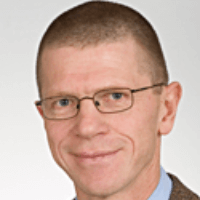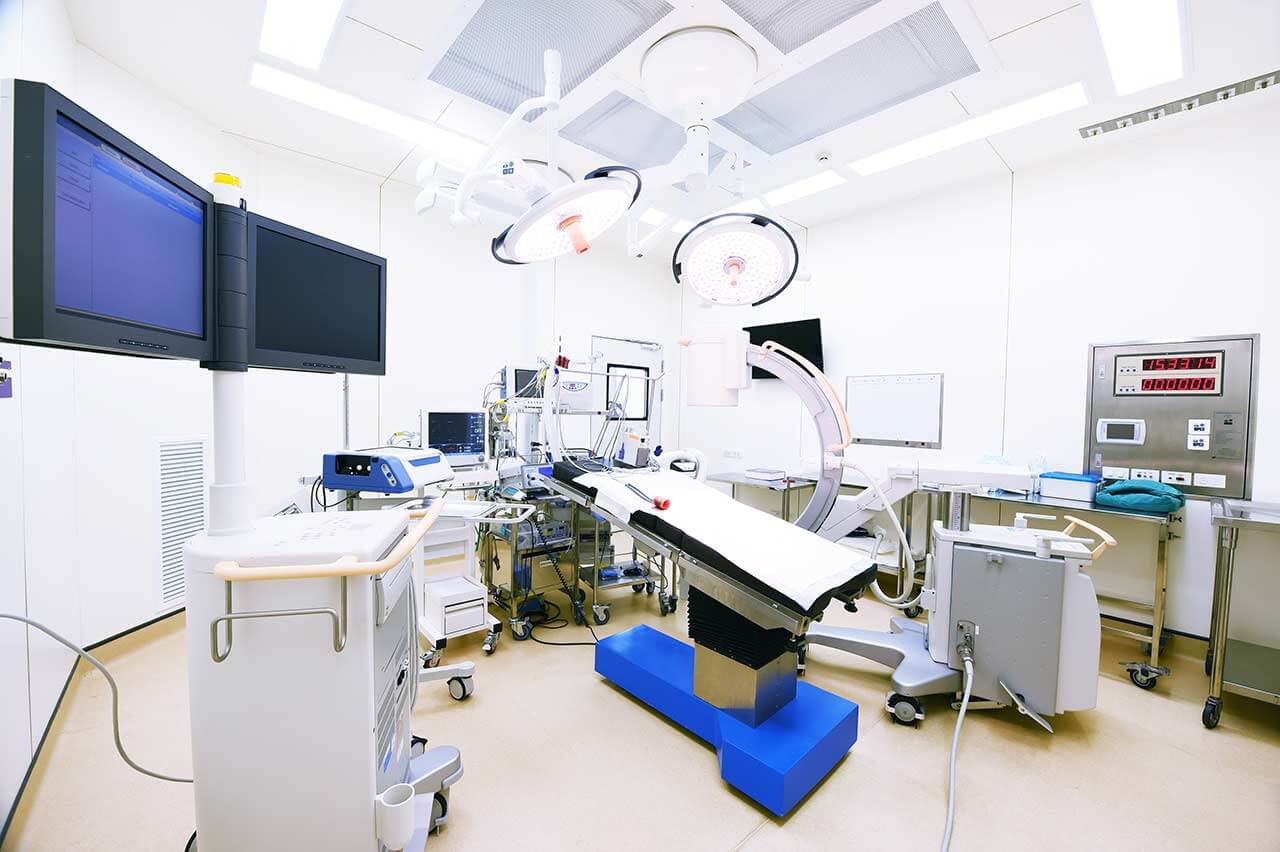
The program includes:
- Initial presentation in the clinic
- clinical history taking
- review of medical records
- physical examination
- laboratory tests:
- complete blood count
- biochemical blood test
- inflammation markers (CRP, ESR)
- blood coagulation analysis (aPTT, PT, INR)
- otorhinolaryngological examination
- neurological examination
- dix-hallpike positional test
- audiometry
- electrocardiogram (ECG)
- brain and cervical spine CT/ MRI
(if indicated clinically, additional cost is 650/1200€) - nursing services
- services of all leading experts
- elaboration of individual treatment plan
Required documents
- Medical records
- Doppler ultrasound/duplex scanning of the brain vessels (if available)
- Brain MRI/CT scan (if available)
Service
You may also book:
 BookingHealth Price from:
BookingHealth Price from:
About the department
According to the Focus magazine, the Department of Neurology at the University Hospital Bonn ranks among the top German departments specializing in the treatment of multiple sclerosis, Alzheimer's disease and Parkinson's disease!
The department offers the full range of accurate diagnostics and effective conservative treatment of diseases of the nervous system. The department's medical team specializes in the treatment of neurodegenerative diseases, brain tumors, neuromuscular disorders, neurovascular pathologies. The department has the state-of-art Stroke Unit. Its specialists can rapidly and effectively diagnose a stroke in the acute phase and carry out the appropriate therapeutic measures. The Stroke Unit operates around the clock. The department is headed by Prof. Dr. med. Thomas Klockgether.
The department's neurologists have special competence in the treatment of brain tumors, including the rare ones (certification of the German Cancer Society). The department's specialists mostly deal with the treatment of glioblastomas, astrocytomas, oligodendrogliomas, medulloblastomas, ependyma, primary lymphomas of the CNS and anaplastic meningiomas. The therapeutic range covers both standard treatment techniques, for example, chemotherapy, radiation therapy, and the use of innovative developments, which often save patients' lives. The treatment strategy is developed within the interdisciplinary tumor boards with the participation of doctors from all the related fields.
The department’s clinical focuses include:
- Diagnostics and treatment of brain tumors (neuro-oncology)
- Primary brain tumors
- Glioblastoma
- Astrocytoma
- Oligodendroglioma
- Rare brain tumors
- Medulloblastoma
- Ependymoma
- Primary lymphomas of the CNS
- Anaplastic meningiomas
- Metastasis from other tumors into the brain, spinal cord and meninges
- Primary brain tumors
- Diagnostics and treatment of motor disorders
- Ataxia
- Parkinson's disease (also a special multimodal comprehensive treatment concept)
- Essential tremor (for example, MRgFUS therapy, deep brain stimulation)
- Diagnostics and treatment of neuromuscular diseases
- Diagnostics and treatment of neurovascular diseases (in particular, stroke)
- Physiotherapy
- Classic massage
- Thermotherapy
- Electrotherapy
- Manual lymphatic drainage
- Cryotherapy
- Kneipp's hydrotherapy, walking in water, etc.
- Special massage, for example, colon massage
- Healing baths
- Bobath therapy
- Brugger's therapy
- Other physiotherapeutic measures
- Diagnostics and treatment of other neurological diseases
Curriculum vitae
Academic Degrees
- 1991 Habilitation, University of Tuebingen.
- 1987 - 1991 Board certification in Neurology, Department of Neurology, University of Tuebingen.
- 1974 - 1980 Medical School, University of Göttingen.
Major Positions
- Since 2011 Director of Clinical Research DZNE.
- 2008 - 2011 Dean of the Faculty of Medicine, University of Bonn.
- Since 1998 Professor and Head of the Department of Neurology, University Hospital Bonn.
Activities in the Scientific Communities / Professional Memberships
- Since 2015 Head of Bonn International Graduate School Clinical and Population Science.
- Since 2011 Head of the Centre for Rare Diseases Bonn (ZSEB).
- 2004 - 2008 Section Editor, Experimental Neurology.
Honors and Awards
- 2013 Honorary Member of the German Heredoataxia Society.
- 1993 Schilling Professorship.
- 1991 Attempto-Prize, University of Tuebingen.
Photo of the doctor: (c) Universitätsklinikum Bonn
About hospital
According to the authoritative Focus magazine, the University Hospital Bonn ranks among the top ten medical facilities in Germany!
The hospital was opened on January 1, 2001, although in fact it inherits the medical facility, which operated at the Faculty of Medicine of the University of Bonn. The hospital in Germany combines all the highest standards of modern university medicine of the international level. A highly competent team of experienced physicians, which consists of more than 8,000 employees from various fields, takes care of the patients’ health.
The hospital has 32 specialized departments and 23 institutes, which implement the highest standards of treatment in Germany. On their basis, in addition to the successful clinical activities, the productive research and training of young specialists are carried out. Also, the hospital has 10 intensive care units and more than 30 cutting-edge operating rooms. They are equipped with the advanced surgical, navigation and monitoring systems, which provide sparing and the most effective surgical treatment. The total number of places for hospitalization is 1,250 beds.
The hospital presents all fields of medicine, while many of them are awarded by prestigious German and international certificates. For example, in 2007, the Comprehensive Cancer Center of the hospital became one of the four winners at the nationwide competition among Cancer Centers of Excellence. The research focuses primarily on the clinical genetics and genetic epidemiology, neurology, immunology and infectiology, hepatology and gastroenterology, and diseases of the cardiovascular system. The research findings contribute to the development of new therapeutic methods and overall improvement of treatment in Germany.
The main value for all employees of the hospital in Germany is human health, his individual needs and wishes, therefore, despite the high-tech infrastructure, the focus remains on the human attitude and respect for each patient.
Photo: (с) depositphotos
Accommodation in hospital
Patients rooms
The patients of the University Hospital Bonn live in cozy single, double and triple rooms, designed in bright colors. The standard room furnishing includes a comfortable bed with a remote control, a bedside table, a wardrobe, a table and chairs, as well as a TV and a telephone. Each patient room is equipped with an ensuite bathroom with toilet and shower. The hospital also provides enhanced-comfort rooms.
Meals and Menus
The patients of the hospital are offered tasty and balanced three meals a day: breakfast, lunch and dinner. Every day each meal features three different menus, including a vegetarian one. If you for some reason do not eat all the food, you will be offered an individual menu. Please inform the medical staff about your dietary preferences prior to the treatment.
Further details
Standard rooms include:
Religion
Christian priests are available for the patients at any time. Representatives of other religions may be requested at any time.
Accompanying person
Your companion may stay with you in your room or at a hotel of your choice during the fixed program.
Hotel
You may stay at the hotel during the outpatient program. Our employees will support you for selecting the best option.
The hospital offers a full range of laboratory tests (general, hormonal, tests for infections, antibodies, tumor markers, etc.), genetic tests, various modifications of ultrasound scans, CT scans, MRI and PET / CT, angiography, myelography, biopsy and other examinations. Treatment with medications, endoscopic and robotic operations, stereotaxic interventions is carried out here, modern types of radiation therapy are also used. The hospital offers patients all the necessary therapeutic techniques.
- Surgical treatment of the brain tumors, tumors of spinal cord and spine
- Replacement of all joints, resection arthroplasty
- Deep brain stimulation and vagus nerve stimulation in patients with epilepsy
- Multimodal complex treatment of Parkinson disease
- Thoracic endovascular aortic repair (TEVAR)
These are benign and malignant breast pathologies, malignant tumors of various localizations, neuromuscular diseases, stroke, retinal pathologies and various visual impairments, infertility, autoimmune diseases, epilepsy, coronary artery disease and myocardial infarction, leukemia and other pathologies.
- Ophthalmology
- Epileptology
- Reproductive medicine
- Hematology and oncology
- Neurosurgery
Over 8,000 highly qualified doctors and other employees work at the hospital.





